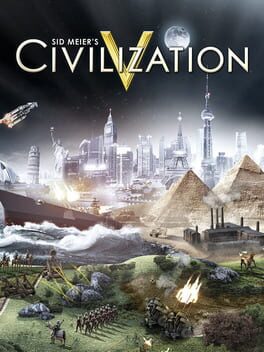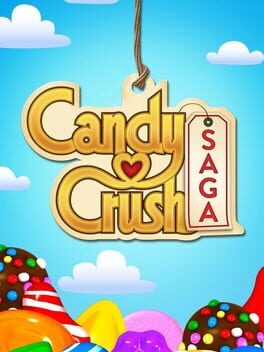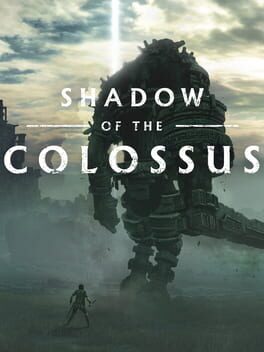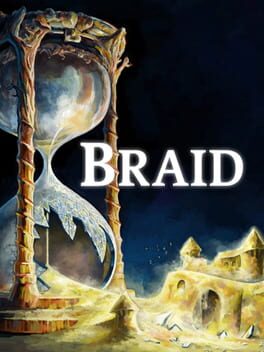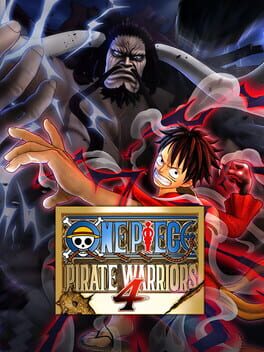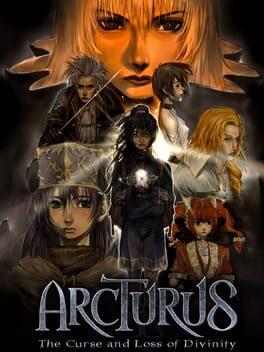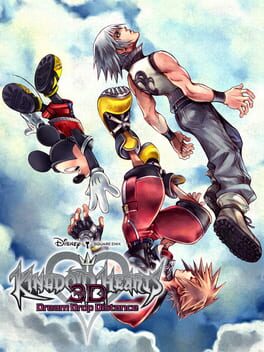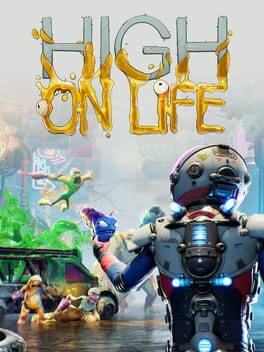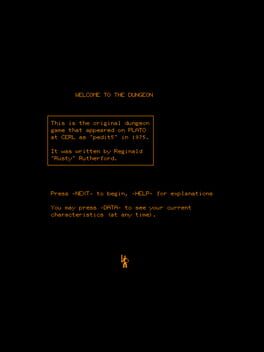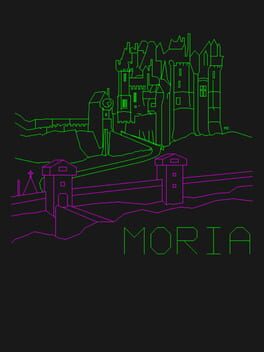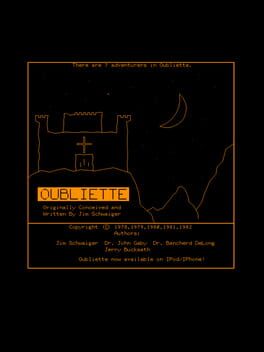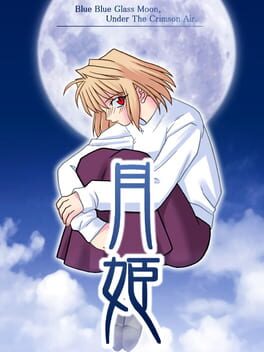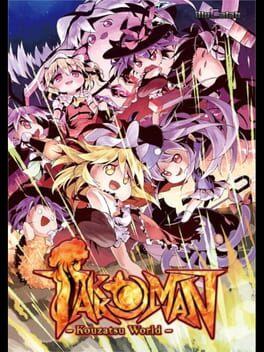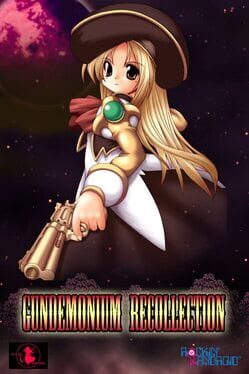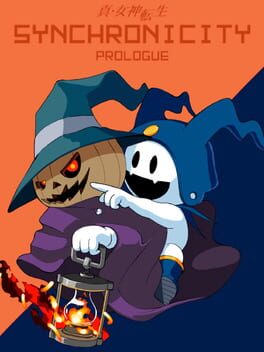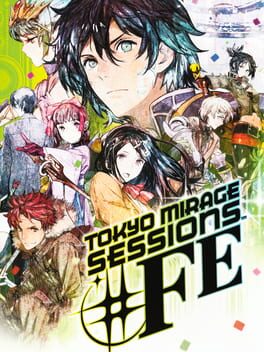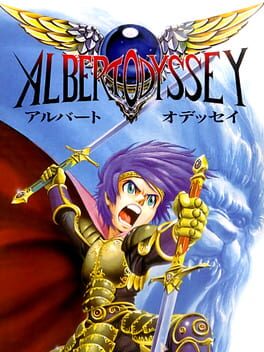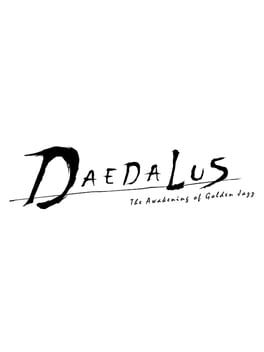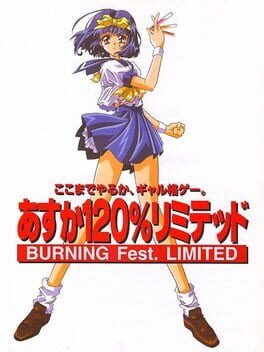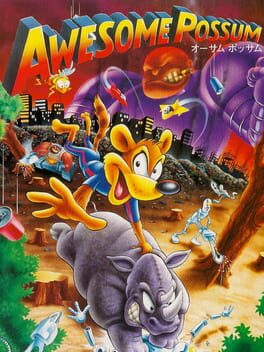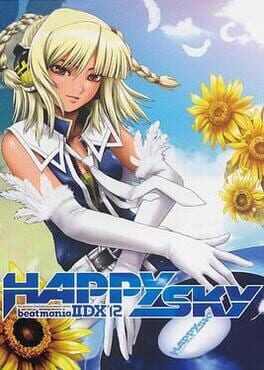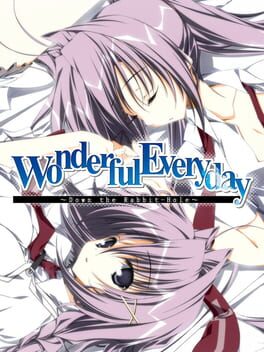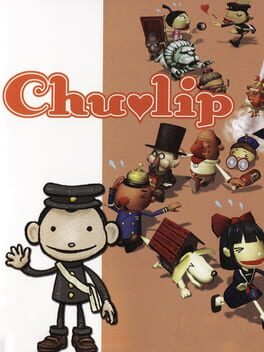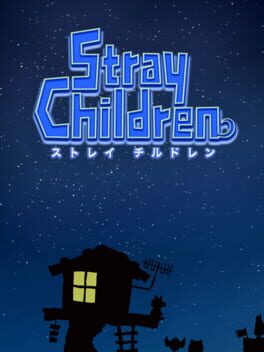Raphael
22 reviews liked by Raphael
Candy Crush Saga
2012
This has single-handedly made me oppose all video game remakes on principle.
The original PS2 version, to this day, is stunning. The strengths and limitations of that console were utilized to create something completely unique and impossible to truly replicate (even pc emulation fails at this). The blinding bloom lighting, washed out colors, and low resolution gave the game this otherworldly sheen that I was mesmerized by. It gives the impression of a beautiful but god-forsaken no man's land enveloped by Dormin's light, a light without warmth.
The PS4 version just... Looks like a typical AAA PS4 game. It's technologically impressive, but that's the only thing there is to say about such boring, soulless visuals. And in a few years, you won't even be able to say that. The remake further disrupts the style of the original with meaningless new features for a purposefully minimalist game, like frivolous collectibles, a photo mode, and a stats page. All just to pad the game out with more time-wasting distractions, as if we didn't already have enough games packed with that.
Worse though are the subtle changes that most probably missed. The gut-wrenching wails of collosi have been replaced with generic monstrous roars (seriously, go to youtube and watch the 4th colossus fight in the original and then in the remake, it's a disgrace), and the enigmatic color changes of their eyes during battle have been removed altogether in favor of always-orange eyes to signify aggression without nuance.
The fact that this is seen by the vast majority of gamers as a faithful remake baffles me. Maybe because it lives up to how most remember it: The pretty looking game where you fight big monsters and it turns out you were the bad guy the whole time! That's pretty much what it is when you boil it down, but I always thought it had a bit more of a mystique that made it stand above most games.
There is no real appreciation in the industry for old games beyond surface level nostalgia, and I think that's one reason why video games are such a wasteland artistically.
The original PS2 version, to this day, is stunning. The strengths and limitations of that console were utilized to create something completely unique and impossible to truly replicate (even pc emulation fails at this). The blinding bloom lighting, washed out colors, and low resolution gave the game this otherworldly sheen that I was mesmerized by. It gives the impression of a beautiful but god-forsaken no man's land enveloped by Dormin's light, a light without warmth.
The PS4 version just... Looks like a typical AAA PS4 game. It's technologically impressive, but that's the only thing there is to say about such boring, soulless visuals. And in a few years, you won't even be able to say that. The remake further disrupts the style of the original with meaningless new features for a purposefully minimalist game, like frivolous collectibles, a photo mode, and a stats page. All just to pad the game out with more time-wasting distractions, as if we didn't already have enough games packed with that.
Worse though are the subtle changes that most probably missed. The gut-wrenching wails of collosi have been replaced with generic monstrous roars (seriously, go to youtube and watch the 4th colossus fight in the original and then in the remake, it's a disgrace), and the enigmatic color changes of their eyes during battle have been removed altogether in favor of always-orange eyes to signify aggression without nuance.
The fact that this is seen by the vast majority of gamers as a faithful remake baffles me. Maybe because it lives up to how most remember it: The pretty looking game where you fight big monsters and it turns out you were the bad guy the whole time! That's pretty much what it is when you boil it down, but I always thought it had a bit more of a mystique that made it stand above most games.
There is no real appreciation in the industry for old games beyond surface level nostalgia, and I think that's one reason why video games are such a wasteland artistically.
Braid
2008
Final Fantasy XVI
2023
Feels like a JRPG made by people who have experienced the genre strictly through TV Tropes writeups. If it were developed by Americans, people would talk about it as though it were Doki Doki Literature Club.
There's a consistent tension in the game between shame about its stylistic heritage and a deep, paralyzing cowardice that keeps it loyal to it. This tension manifests in the story's insistence on being about a world, down to the constant availability of a lore encyclopedia, despite the complete irrelevance of any details of this world to the plot and its ultimate reliance on some of the most rote and formulaic character drama in the series. It's present in the faux-naturalism of mid-fight Marvel quips stuck between uncomplicated, cosmologically-correct monologues about human connections. It's clearly what's motivated the inclusion of empty open-world sections that divide up a linear action game paced around its levels being played one after the other: the game is willing to go to any lengths to avoid being called a hallway.
My favorite symbol of this tension, though, is game's repeated use of a minor key scale as background music: Prelude, but fucked up.
The main cast is completely disallowed any kind of personal complexity or ambiguity. Clive spends the earliest hours of the game denying a painful fact about himself, and this is the first and last display of personal weakness, selfishness, or any form of moral iniquity made by him or any other party member. Each of the rival summoners, by contrast, is given a designated sex thing: promiscuity, obsessiveness, and an Oedipus Complex, respectively. These traits serve as a kind of crude claim to maturity on the part of the game, and the characters to which they're attached are barely developed. No member of the cast rises above a broad archetypal characterization, and Clive himself is no exception, but the most insulting character's Jill. Her role in the story is to love Clive, which she does quietly and without demands. This is briefly interrupted by a revenge plot in which she kills an unambiguously evil cultist for having hurt her, and feels much better afterward. There's a scene in Final Fantasy IV in which the female party members are told by the lead to stay behind for their own safety while the men head to the final confrontation: naturally, they don't listen. In XVI, Jill is told the same thing and stays put.
Dialogue alternates between purely functional exposition and agonizing attempts at humor, with no real attempt to build distinct voices. I do have to give credit to the actor playing Clive, who is obviously trying to complicate very simple lines through his delivery, but it's a losing battle. The character animation is noticeably low-quality in comparison to the series' 6th and 7th generation entries.
The soundtrack is sterile, and the visual design never rises above the level of clean spectacular sightseeing. I can't speak much to the systems design, but interesting fights on normal difficulty are spread extremely thin and more or less only appear in optional content. Feels more like playing A Realm Reborn than any other single player RPG with which I'm familiar.
There's a consistent tension in the game between shame about its stylistic heritage and a deep, paralyzing cowardice that keeps it loyal to it. This tension manifests in the story's insistence on being about a world, down to the constant availability of a lore encyclopedia, despite the complete irrelevance of any details of this world to the plot and its ultimate reliance on some of the most rote and formulaic character drama in the series. It's present in the faux-naturalism of mid-fight Marvel quips stuck between uncomplicated, cosmologically-correct monologues about human connections. It's clearly what's motivated the inclusion of empty open-world sections that divide up a linear action game paced around its levels being played one after the other: the game is willing to go to any lengths to avoid being called a hallway.
My favorite symbol of this tension, though, is game's repeated use of a minor key scale as background music: Prelude, but fucked up.
The main cast is completely disallowed any kind of personal complexity or ambiguity. Clive spends the earliest hours of the game denying a painful fact about himself, and this is the first and last display of personal weakness, selfishness, or any form of moral iniquity made by him or any other party member. Each of the rival summoners, by contrast, is given a designated sex thing: promiscuity, obsessiveness, and an Oedipus Complex, respectively. These traits serve as a kind of crude claim to maturity on the part of the game, and the characters to which they're attached are barely developed. No member of the cast rises above a broad archetypal characterization, and Clive himself is no exception, but the most insulting character's Jill. Her role in the story is to love Clive, which she does quietly and without demands. This is briefly interrupted by a revenge plot in which she kills an unambiguously evil cultist for having hurt her, and feels much better afterward. There's a scene in Final Fantasy IV in which the female party members are told by the lead to stay behind for their own safety while the men head to the final confrontation: naturally, they don't listen. In XVI, Jill is told the same thing and stays put.
Dialogue alternates between purely functional exposition and agonizing attempts at humor, with no real attempt to build distinct voices. I do have to give credit to the actor playing Clive, who is obviously trying to complicate very simple lines through his delivery, but it's a losing battle. The character animation is noticeably low-quality in comparison to the series' 6th and 7th generation entries.
The soundtrack is sterile, and the visual design never rises above the level of clean spectacular sightseeing. I can't speak much to the systems design, but interesting fights on normal difficulty are spread extremely thin and more or less only appear in optional content. Feels more like playing A Realm Reborn than any other single player RPG with which I'm familiar.
Baldur's Gate 3
2020
the games master (or dungeon master) has long been one of the most fascinating roles one can play in any game - be it video, table, or sport. a blend of one-person theatre, moderation, improvisational comedy, and game design, with the emphasis on these roles and others besides shifting from person to person, from table to table, it's a truly unique position, and it's perhaps the key thing that makes computer role-playing fundamentally different from tabletop role-playing, even if you're still playing with friends. when a game is your dungeon master, it becomes non-negotiable, unwavering, utterly fastidious, and miserly in its rule-keeping. this is not always a problem if the rules are strong enough - i'm not especially interested in playing a game of Go with a referee who's cool with me eating the opponent's pieces when they aren't looking, except maybe as a one-off - but when the rules are not strong enough, it leaves me craving the human hand of a DM who will gently massage the systems behind the scenes to ensure everyone involved is having fun. and in Fifth Edition, the rules are, assuredly, not Strong Enough.
Fifth Edition Dungeons & Dragons is, bluntly, a poor TTRPG that demands a level of simulationist interest that would bore a 40K player (quick question, has anyone who has ever played 5E ever gave a shit about the carry weight of currency? did you even know that the gold you're carrying around has a weight that you're supposed to manage?) as support to a tactical game that is as shallow as it is torturously prolonged, capped by a social game that is functionally nonexistent. D&D is content to coast by on its cultural ubiquity and the fact that almost all of its player base barely even really knows that other TTRPGs exist, sailing the seas of mediocrity on a boat that starts to sink if you set foot in it for more than a few minutes. it is possible to play wonderful games in D&D, but I have yet to hear of - or be part of - one that was wonderful because it was D&D - rather, they are invariably good in spite of D&D, and always require some degree of selective memory or active rejection over many of the game's outrageously numerous rules.
given this perspective, it's perhaps not surprising that i am not enormously enthused by larian studios' Baldur's Gate III, a game that attempts to faithfully adapt the 5E rules to the broad framework of the studio's last game, Divinity: Original Sin II. but even with that in mind, i find myself genuinely shocked at how unbelievably boring BG3 is.
as the soothsayers on the mount foretold would occur the instant Larian proudly announced their design intentions, marrying 5th Edition Dungeons & Dragons to Divinity Original Sin 2's combat completely hamstrings the latter: the genuinely expressive and reactive toolkit of that game is filtered through a dull interpretation of the most stock spells of 5E, making this less a game of setting up a simple rube goldberg machine to defeat an encounter, and more about tediously playing out the motions of early-game dnd in a world your imagination cannot penetrate.
here's the trick to being a DM: let the players do the hard work. if they come up with a crazy scheme that you never imagined that just might work... who's to say it can't? you and the players are telling this story together, after all. if they want to say what happens next, let them. if they ask if there is a chandelier to swing on, say yes. constraining yourself to a number of set solutions you devise and hope the players find is only making the game less interesting for everyone involved. when the world exists only in your heads, it expands at the speed of thought. anything is possible.
while baldur's gate 3 is a more permissible dungeon master than some games, it remains a prisoner of the imaginations of it's designer. and this is hardly a fair critique to make of a video game, i know...except when it's playing with a ruleset explicitly designed with a lackadaisical, easygoing dungeon master in mind. damning as it might be to say, the easiest way to see the failings of 5E as a set of rules is to play by them, and BG3 offers you no choice but to do so, but without even some crucial features like Ready Actions that narrow it's tactical space even more. original sin 2 nobly wrestled with this thanks to an expansive spell set mostly based on reactions and creating situations, and one wherein you could be doing powerful things very quickly. 5E has so little of this, by comparison, especially in the miserable early levels. all you have is some of the weakest tactical combat in table gaming. and explosive red barrels, of course.
the designers are clearly aware of the reduced capability for the player to interact with the environment, and have accordingly given most major encounters one big object to interact with and defeat enemies with, be it one of the aforementioned red barrels, or a giant rock suspended by a rope above where two men are standing, etcetera. this is, definitionally, reactivity in action, i suppose, but is about as intellectually engaging as putting square pegs in square holes: there's a reason we don't hold a party for every first-person shooter with an explosive barrel in it, why are we holding a party for this one?
it certainly can't be the early-game writing. while certainly I'm gratified that BG3 is less outwardly annoying and in-poor-taste as Divinity 2's edgelord parade, it's seemingly forgotten to replace it with much of anything. BG3's player character must surely be one of the most boring in the entire genre, with nary a hint of personality escaping their suffocatingly matter-of-fact dialogue options, that only on occasion dare to be so bold as to allow the player to be...slightly rude or sarcastic. there's never going to be a CRPG that allows for as much reactivity and input as a dungeon master of flesh and blood, but even within those expectations, BG3 falls utterly flat. so much of the appeal of this genre, to me, is in creating a guy that you can rotate around in your head. but baldur's gate 3 is the kind of DM that is only interested in a PC for the Numbers on their character sheet: the actual Character of the Player Character ceases to be once you complete their creation, and let them loose from your imagination into the confining reality of BG3's world.
(incidentally, BG3 joins CyberPunk 2077 in the prestigious world of 'Games With Character Creators That Give Me Chaser Vibes' with their insistence on embodying transness exclusively via mixing-and-matching voice and genitals on a series of binary traditionally attractive male or female body types. i genuinely appreciate the ability to play as a non-binary character: i don't appreciate the unavoidably fetishistic nature of prioritizing genital customization over any actual input on everyday trans presentation, like binders, top surgery, or even an androgynous voice or two)
with only a solid day's of gameplay under my belt, i can't in good conscience claim to have the full scope of the game's companions, i can at least say that the first impressions they make fall within tiresome cliches we've all had our fill of, i think. or have we? have you?
this is my conundrum with baldur's gate 3. i truly do not think the game is remarkable in any meaningful way: it is not awful but it is a very bog-standard CRPG with a little more messing with the set dressing than is typical for the genre. it is narratively, and mechanically, rote. i have only spent a few hours with it, and already, i am tired of it. just as i am tired of dungeons & dragons.
but maybe you aren't. maybe you haven't played baldur's gate 1 or 2, maybe you haven't played darklands or torment, maybe you haven't played arcanum or underrail. maybe you haven't played pillars of eternity or tyranny. maybe you're someone who got into D&D via Critical Role's explosion, someone who has never played a CRPG quite like this before, and are being introduced to an entire sub-genre with the first true 5E-based CRPG. maybe you still think jokes about Bards fucking Dragons are really funny. i say this with true sincerity (well, maybe not the last one, which was a little mean, and for which i apologize): i am genuinely delighted, on some level, to see a CRPG get this popular. while i truly cannot explain the swathes of industry veterans giving into astonishment on a scale undreamed of with this game, i also know that d&d is much, much bigger than it was when i was first enthralled by dragon age: origins, a game with a similarly rote plot, and still captured by heart and imagination, and that if this is your introduction to the magic of CRPGs, i can see why you give into astonishment. because crpgs can be astonishing.
but i would like for it, and D&D as a whole, to remain an introduction, to not consume the entire conception of the hobby, as D&D has. i am sincerely and genuinely disappointed with the total lack of apprehension the wider critical scene of games has for BG3, given its connection to Wizards of the Coast, a deeply evil company that, just today, admitted to using AI art in the latest D&D sourcebook. i am uninterested in contributing to the breathless hype of an IP owned by a company uninterested in the basic humanity of art and it's creation. not when there are so many other games out there.
you can stay in plato's cave, for a while. you can stay there forever if you want, dungeon crawling up and down the sword coast. but you can also leave that cave, and come into my other cave, slightly next door, where i can tell you about blades in the dark and pentiment. they're really very very cool.
as for me? i turned the game off when i reached a point whereupon, after noticing an obvious trap, i snuck around the skeletons lying in wait to attack and reached the treasure...whereupon the treasure chest spoke to me and told me to fuck off until i had killed the skeletons. fuck off, BG3. why should i bother trying to navigate your encounters creatively when you're going to just say that it doesn't work like that? I've played with dungeon masters like this before, and they aren't good ones. they're the kind of ones who wonder why they can't seem to hold a group together for more than a couple of sessions.
maybe i'll return to BG3, but if i do, it'll only be in multiplayer. with friends, and possibly a drink or two. but if me and three friends are committing to a possible 120-hour RPG...why not just take it a little bit further and just play some actual Tabletop? Why not play something that isn't Dungeons & Dragons? Why not play with a dungeon master that won't be such a spoilsport?
Fifth Edition Dungeons & Dragons is, bluntly, a poor TTRPG that demands a level of simulationist interest that would bore a 40K player (quick question, has anyone who has ever played 5E ever gave a shit about the carry weight of currency? did you even know that the gold you're carrying around has a weight that you're supposed to manage?) as support to a tactical game that is as shallow as it is torturously prolonged, capped by a social game that is functionally nonexistent. D&D is content to coast by on its cultural ubiquity and the fact that almost all of its player base barely even really knows that other TTRPGs exist, sailing the seas of mediocrity on a boat that starts to sink if you set foot in it for more than a few minutes. it is possible to play wonderful games in D&D, but I have yet to hear of - or be part of - one that was wonderful because it was D&D - rather, they are invariably good in spite of D&D, and always require some degree of selective memory or active rejection over many of the game's outrageously numerous rules.
given this perspective, it's perhaps not surprising that i am not enormously enthused by larian studios' Baldur's Gate III, a game that attempts to faithfully adapt the 5E rules to the broad framework of the studio's last game, Divinity: Original Sin II. but even with that in mind, i find myself genuinely shocked at how unbelievably boring BG3 is.
as the soothsayers on the mount foretold would occur the instant Larian proudly announced their design intentions, marrying 5th Edition Dungeons & Dragons to Divinity Original Sin 2's combat completely hamstrings the latter: the genuinely expressive and reactive toolkit of that game is filtered through a dull interpretation of the most stock spells of 5E, making this less a game of setting up a simple rube goldberg machine to defeat an encounter, and more about tediously playing out the motions of early-game dnd in a world your imagination cannot penetrate.
here's the trick to being a DM: let the players do the hard work. if they come up with a crazy scheme that you never imagined that just might work... who's to say it can't? you and the players are telling this story together, after all. if they want to say what happens next, let them. if they ask if there is a chandelier to swing on, say yes. constraining yourself to a number of set solutions you devise and hope the players find is only making the game less interesting for everyone involved. when the world exists only in your heads, it expands at the speed of thought. anything is possible.
while baldur's gate 3 is a more permissible dungeon master than some games, it remains a prisoner of the imaginations of it's designer. and this is hardly a fair critique to make of a video game, i know...except when it's playing with a ruleset explicitly designed with a lackadaisical, easygoing dungeon master in mind. damning as it might be to say, the easiest way to see the failings of 5E as a set of rules is to play by them, and BG3 offers you no choice but to do so, but without even some crucial features like Ready Actions that narrow it's tactical space even more. original sin 2 nobly wrestled with this thanks to an expansive spell set mostly based on reactions and creating situations, and one wherein you could be doing powerful things very quickly. 5E has so little of this, by comparison, especially in the miserable early levels. all you have is some of the weakest tactical combat in table gaming. and explosive red barrels, of course.
the designers are clearly aware of the reduced capability for the player to interact with the environment, and have accordingly given most major encounters one big object to interact with and defeat enemies with, be it one of the aforementioned red barrels, or a giant rock suspended by a rope above where two men are standing, etcetera. this is, definitionally, reactivity in action, i suppose, but is about as intellectually engaging as putting square pegs in square holes: there's a reason we don't hold a party for every first-person shooter with an explosive barrel in it, why are we holding a party for this one?
it certainly can't be the early-game writing. while certainly I'm gratified that BG3 is less outwardly annoying and in-poor-taste as Divinity 2's edgelord parade, it's seemingly forgotten to replace it with much of anything. BG3's player character must surely be one of the most boring in the entire genre, with nary a hint of personality escaping their suffocatingly matter-of-fact dialogue options, that only on occasion dare to be so bold as to allow the player to be...slightly rude or sarcastic. there's never going to be a CRPG that allows for as much reactivity and input as a dungeon master of flesh and blood, but even within those expectations, BG3 falls utterly flat. so much of the appeal of this genre, to me, is in creating a guy that you can rotate around in your head. but baldur's gate 3 is the kind of DM that is only interested in a PC for the Numbers on their character sheet: the actual Character of the Player Character ceases to be once you complete their creation, and let them loose from your imagination into the confining reality of BG3's world.
(incidentally, BG3 joins CyberPunk 2077 in the prestigious world of 'Games With Character Creators That Give Me Chaser Vibes' with their insistence on embodying transness exclusively via mixing-and-matching voice and genitals on a series of binary traditionally attractive male or female body types. i genuinely appreciate the ability to play as a non-binary character: i don't appreciate the unavoidably fetishistic nature of prioritizing genital customization over any actual input on everyday trans presentation, like binders, top surgery, or even an androgynous voice or two)
with only a solid day's of gameplay under my belt, i can't in good conscience claim to have the full scope of the game's companions, i can at least say that the first impressions they make fall within tiresome cliches we've all had our fill of, i think. or have we? have you?
this is my conundrum with baldur's gate 3. i truly do not think the game is remarkable in any meaningful way: it is not awful but it is a very bog-standard CRPG with a little more messing with the set dressing than is typical for the genre. it is narratively, and mechanically, rote. i have only spent a few hours with it, and already, i am tired of it. just as i am tired of dungeons & dragons.
but maybe you aren't. maybe you haven't played baldur's gate 1 or 2, maybe you haven't played darklands or torment, maybe you haven't played arcanum or underrail. maybe you haven't played pillars of eternity or tyranny. maybe you're someone who got into D&D via Critical Role's explosion, someone who has never played a CRPG quite like this before, and are being introduced to an entire sub-genre with the first true 5E-based CRPG. maybe you still think jokes about Bards fucking Dragons are really funny. i say this with true sincerity (well, maybe not the last one, which was a little mean, and for which i apologize): i am genuinely delighted, on some level, to see a CRPG get this popular. while i truly cannot explain the swathes of industry veterans giving into astonishment on a scale undreamed of with this game, i also know that d&d is much, much bigger than it was when i was first enthralled by dragon age: origins, a game with a similarly rote plot, and still captured by heart and imagination, and that if this is your introduction to the magic of CRPGs, i can see why you give into astonishment. because crpgs can be astonishing.
but i would like for it, and D&D as a whole, to remain an introduction, to not consume the entire conception of the hobby, as D&D has. i am sincerely and genuinely disappointed with the total lack of apprehension the wider critical scene of games has for BG3, given its connection to Wizards of the Coast, a deeply evil company that, just today, admitted to using AI art in the latest D&D sourcebook. i am uninterested in contributing to the breathless hype of an IP owned by a company uninterested in the basic humanity of art and it's creation. not when there are so many other games out there.
you can stay in plato's cave, for a while. you can stay there forever if you want, dungeon crawling up and down the sword coast. but you can also leave that cave, and come into my other cave, slightly next door, where i can tell you about blades in the dark and pentiment. they're really very very cool.
as for me? i turned the game off when i reached a point whereupon, after noticing an obvious trap, i snuck around the skeletons lying in wait to attack and reached the treasure...whereupon the treasure chest spoke to me and told me to fuck off until i had killed the skeletons. fuck off, BG3. why should i bother trying to navigate your encounters creatively when you're going to just say that it doesn't work like that? I've played with dungeon masters like this before, and they aren't good ones. they're the kind of ones who wonder why they can't seem to hold a group together for more than a couple of sessions.
maybe i'll return to BG3, but if i do, it'll only be in multiplayer. with friends, and possibly a drink or two. but if me and three friends are committing to a possible 120-hour RPG...why not just take it a little bit further and just play some actual Tabletop? Why not play something that isn't Dungeons & Dragons? Why not play with a dungeon master that won't be such a spoilsport?
High on Life
2022
6 lists liked by Raphael
by Gumty |
166 Games
by dehri |
1 Games
by chandler |
89 Games
by Yali |
25 Games
by vehemently |
146 Games
